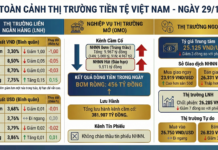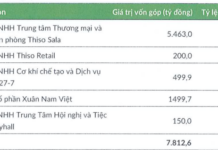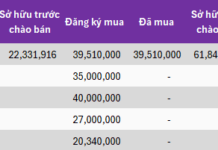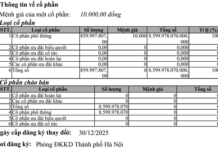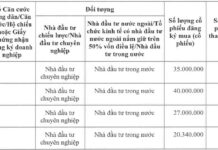“Lifetime employment” refers to long-term civil service positions, indicating indefinite labor contracts in state agencies and public non-business units, with entitlements to salary and allowances as regulated.
According to the amended Law on Officials, Civil Servants, and Public Employees in 2019, those recruited from July 1st, 2020, onwards will be under fixed-term contracts.

There are still three cases where lifetime employment applies (Illustrative image)
This means that from July 1st, 2020, onwards, newly recruited employees will be under fixed-term contracts and will not enjoy lifetime employment.
However, according to the amended Law on Officials, Civil Servants, and Public Employees in 2019, there are still some cases where “lifetime employment” applies. Specifically, indefinite labor contracts (lifetime employment) are applicable in three cases.
These are as follows:
The first case concerns public employees recruited before July 1st, 2020;
The second case involves officials and civil servants who transition to become public employees;
The third case includes those recruited to work in regions with particularly difficult socio-economic conditions.
Additionally, Article 26 of the amended Law in 2019 stipulates the content of the labor contract, which includes: The name and address of the public non-business unit and its head;
Full name, address, date, and year of birth of the recruited employee. If the employee is under 18 years old, the full name, address, date, and year of birth of the employee’s legal representative must be provided;
Job or task description, position, and workplace; Rights and obligations of both parties; Type of contract, term, and conditions for termination; Salary, bonuses, and other benefits (if any);
The contract should also include working hours and rest time; Probationary period (if any); Working conditions and issues related to labor protection; Social insurance and health insurance;
Validity of the labor contract; Other commitments related to the nature, characteristics of the industry or field, and specific conditions of the public non-business unit, provided that they do not contradict the provisions of the amended Law in 2019 and other relevant laws.

For job titles regulated by law and appointed by the superior of the head of the public non-business unit
Article 26 of the amended Law in 2019 also stipulates that the labor contract shall be concluded in writing between the head of the public non-business unit and the recruited public employee, with three copies, one of which shall be given to the employee.
For job titles regulated by law and appointed by the superior of the head of the public non-business unit, the consent of that superior must be obtained before concluding the labor contract.
Article 25 of the amended Law in 2019: Types of Labor Contracts
1. Fixed-term labor contracts specify the term and termination date, ranging from a minimum of 12 months to a maximum of 60 months.
These contracts apply to public employees recruited from July 1st, 2020, onwards, except for the cases mentioned in points b and c of Clause 2 of this Article.
2. Indefinite labor contracts do not specify a term or termination date. These are applicable in the following cases:
a) Public employees recruited before July 1st, 2020;
b) Officials and civil servants who transition to become public employees according to point b of Clause 1, Article 58 of this Law;
c) Those recruited to work in regions with particularly difficult socio-economic conditions.
Minister of Internal Affairs on salary policy reform and administrative unit arrangement
In 2024, the Ministry of Interior continues to advise on decentralization and delegation of authority, emphasizing the reorganization of the administrative apparatus. It proposes to the competent authorities the synchronized, unified, comprehensive, and effective implementation of wage policy reforms starting from July 1, 2024.
Prime Minister Pham Minh Chinh: Investing in administrative reform is investing in development
On the afternoon of February 2nd, Prime Minister Pham Minh Chinh, Head of the Government Steering Committee for Administrative Reform, presided over the 7th Meeting of the Steering Committee to evaluate the results of administrative reform in 2023 and set directions and tasks for 2024.
Many Retirement Reforms for Retirees with Merit
Starting from 1st July 2024, with the reform of salary for civil servants and officials, a series of policies concerning pensions and benefits for meritorious people are expected to change. The Vietnam Social Security (VSS) has recently proposed an 8% increase, while the Ministry of Labor, Invalids and Social Affairs (MOLISA) argues for a minimum of 15% raise.
Policies in force effective May 2024
An array of prominent policies related to economy, society, and more are set to take effect in May 2024…







